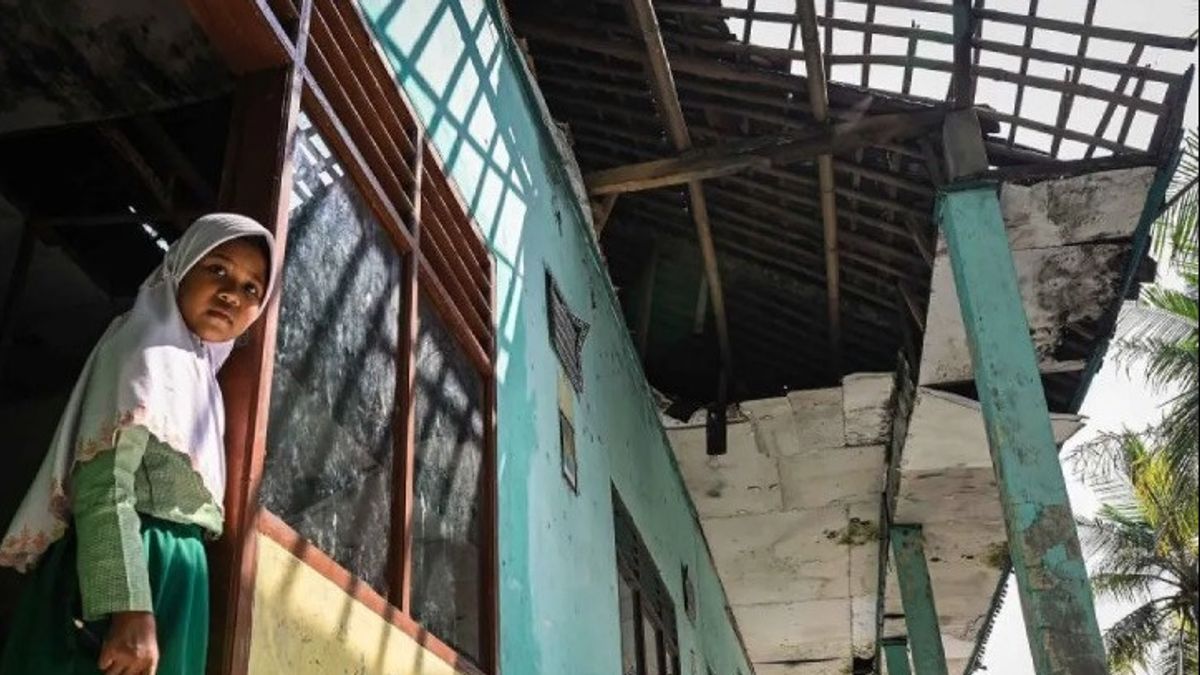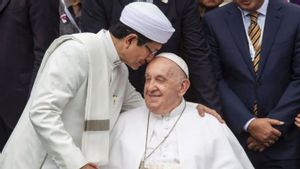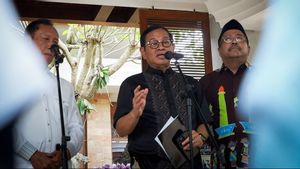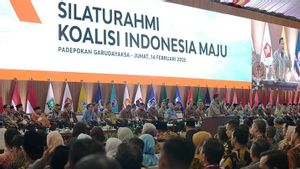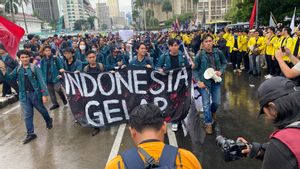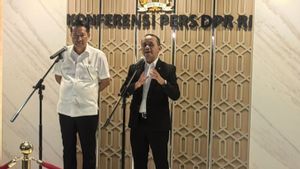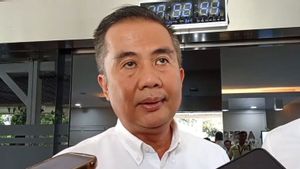The Ministry of Finance (Kemenkeu) discourse to change the allocation of the education budget has received rejection from various parties. This idea, according to the Education and Teacher Association (P2G) has the potential to be unconstitutional or seem to outsmart the constitution.
This idea was first revealed by Finance Minister Sri Mulyani in a working meeting to discuss the Draft State Budget (RAPBN) of the DPR on Wednesday (4/9/2024). He encouraged the DPR to re-examine the portion of the mandatory budget (mandatory spending) for education, which is 20 percent of the APBN.
The former Managing director of the World Bank suggested that the mandatory spending of 20 percent be taken from state revenues, not state expenditures. The reason is, according to Sri Mulyani, the mandatory education budget allocated from state spending tends to change education funds.
"We have discussed it at the Ministry of Finance. This is how to manage the APBN to remain comply or compliant with the constitution, where 20 percent of our income should be for education," said Sri Mulyani.
"If 20 percent of spending, in spending there is a lot of uncertainty, the education budget becomes funny, it goes up and down," he said.
Sri Mulyani gave an example of how state spending in the 2022 State Budget experienced a surge due to the increase in energy subsidies to Rp200 trillion. That way, the education budget will automatically increase. In fact, the increase in subsidies is not due to an increase in state revenue but the soaring world oil prices.
This scheme received rejection from various circles, one of which was P2G. Minister of Finance Sri Mulyani's idea has the potential to be unconstitutional and seem to outsmart the constitution. In fact, according to P2G, the education budget must follow a constitutional obligation based on Article 31 paragraph 4 of the 1945 Constitution, that the state prioritizes the education budget of at least 20 percent of the APBN and APBD.
The Minister of Finance's idea will actually reduce the education budget. Because in the state revenue budget it is smaller than state spending, because the state budget often suffers from deficits. This means that if the Minister of Finance's idea for a 20 percent education budget is taken from revenue, not from spending, the education budget must be getting smaller in nominal.
"With a mandatory budget of 20 percent of the state budget or equivalent to Rp665 trillion, the cost of education still feels expensive for the community. The figure of 20 percent is already minimalist. So why should it be multiplied to reduce it again? Obviously we reject the proposal," said Satriwan Salim, P2G National Coordinator, in a statement received by VOI.
The education budget has indeed continued to increase in at least the last three years. In 2023, the education budget will increase to IDR 612.2 trillion, in 2024 it will increase to IDR 665.02 trillion, and in 2025 it will increase again to IDR 722.6 trillion.
But Satriwan said, although the budget always increases every year, the problem of education is always related to the same thing. According to data from the Central Statistics Agency (BPS) as many as 60.60 percent of elementary school buildings are damaged, besides that, vocational vocational school graduates are also the biggest contributors to the unemployment rate.
This is still added that the average length of school (RLS) is still relatively low, namely 8.77 years, which means that going to school is only equivalent to junior high school, and the salaries of honorary teachers are well-posed. Literacy, numeracy, and science are also still very low, even below the average OECD state score (Organization for Economic Cooperation and Development).
Furthermore, Satriwan also highlighted the details of the education budget that was distributed to a number of bags. He detailed that the Ministry of Education and Culture only manages around 15 percent or Rp. 98.9 trillion and the Ministry of Religion only 9 percent or around Rp. 62.3 trillion. In fact, the largest allocation of the education budget from the APBN is in the form of transfers to regions and village funds which reach Rp. 346 trillion or around 52 percent.
This is the education budget scheme that we rejected from the start. The village fund period is taken from education funds that are mandated by the constitution," said Satriwan.
On the other hand, Director of the Institute for Development of Economics and Finance (Indef) Eko Listiyanto can understand that this discourse was thrown by the Ministry of Finance. He called this to anticipate dynamics such as soaring world oil or rupiah depreciation.
However, Eko warned that technically the education budget would go down because the revenue budget scheme was planned to be lower than the expenditure.
In terms of the Ministry of Finance (as) the fund manager will be more certain because it is 20 percent of the income. Only in terms of management, budget management, which is called education, yes, spending. Just like infrastructure spending.
For this reason, instead of fiddling with the education budget, Eko suggested that the government further highlight the effectiveness of budget management. He said that in the context of education, the current bureaucratic capacity is unable to manage a very large budget.
"Finally, many activities in spending on education were created just to absorb the budget," he said.
Eko also gave an example of the cost that according to him was 'adakan', such as meetings discussing the education curriculum but it had to be done at the hotel. In addition, he also doubts that the decline in the education budget will be accompanied by the effectiveness of managing his funds.
"Maybe later it will still be used more for [things] that don't have a direct impact on students."
According to the calculation of economist Indef Ariyo DP Irhanma, if the 2025 State Budget Draft scenario for education spending is currently set at IDR 722 trillion, then this allocation will decrease to IDR 599 trillion if it follows the Ministry of Finance's proposal.
"The Ministry of Finance's proposed scenario will reduce the value of the education function budget by Rp123 trillion," said Ariyo.
In line with Eko, Ariyo also said that the problem of the APBN allocation for education was in the problem of effectiveness. He also added that the Ministry of Finance should provide a solution to encourage improvement in the effectiveness and quality of spending on the function of education.
SEE ALSO:
"It's not that we propose a reformulation of the calculation of mandatory spending for education which reduces the number of allocations for education," he said.
"One of the ineffective and quality budgets can be seen from the amount of Rp. 111 trillion or the equivalent of 16% of the education budget in 2023 that has not been realized from the APBN ceiling for Fiscal Year 2023," Ariyo concluded.
The English, Chinese, Japanese, Arabic, and French versions are automatically generated by the AI. So there may still be inaccuracies in translating, please always see Indonesian as our main language. (system supported by DigitalSiber.id)
